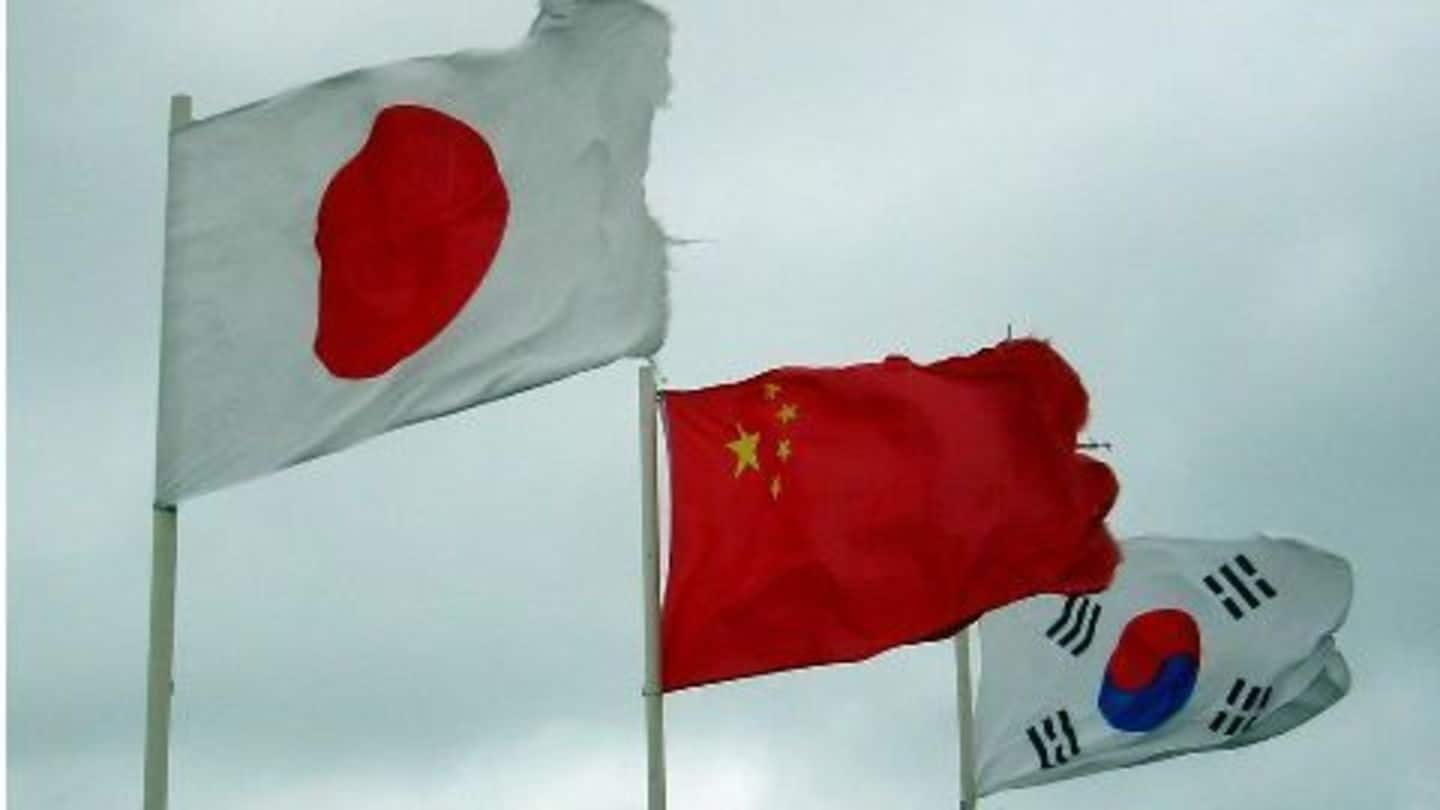
Japan and South Korea: Thaw in relations
What's the story
At their first summit together, Japanese and South Korean leaders lifted bilateral relations out of the deep freeze, resolving to fix conflicts over "wartime history and counter North Korea's nuclear threat". The two leaders met a day after holding talks with the Chinese premier, Li Keqiang. The leaders agreed to settle the "comfort women dispute"- the "biggest stumbling block" to friendlier ties.
History
Historical conflict between the 3 countries
Relations between the three countries have been conflicted since a long time. The historical dispute related to the Japanese rule (1910-45) over Korea was greatly souring especially due to the subject of Korean "comfort-women" coercively recruited to operate in Japanese wartime military brothels. Similarly, China resented Japanese wartime assaults and also had differences with Japan over the independence of East China Sea island chain.
1 Nov 2015
China-Japan-South Korea hold historic summit
The leaders of Japan, South Korea and China held their primary summit after 3 years, leaving aside their individual historical hostility and regional conflicts to concentrate on "shared security and trade concerns." The assemblage in Seoul was a characteristic statement of purpose by the three largest Northeast Asian economies who will benefit significantly from "diplomatic and economic gains from closer cooperation."
Information
When was the previous trilateral summit held?
The former China–Japan–South Korea meeting was held in China's capital Beijing in May 2012.
1 Nov 2015
Leaders skirt sensitive issues at the trilateral summit
Shinzo Abe (Japanese Prime Minister), Li Keqiang (Chinese Premier) and Park Geun-hye (South Korean President) resolved to hasten talks for a trilateral "free-trade agreement" but kept away from sensitive issues. None of the leaders spoke in depth about the traditional strain on relationships. Even though South Korea and Japan agreed to work on the 'comfort women' issue, none said what was to be done.
2 Nov 2015
Summit receives praise from UN Secretary General
Ban Ki-moon, the UN Secretary-General congratulated the leaders of Japan, China and South Korea for their engagement in the trilateral summit. He pushed them to work jointly for the promotion of "mutual trust and cooperation." Ban also communicated confidence that the resumption of the such a summit "will reinforce the collaboration among the three countries" boosting collaboration in Northeast Asia.